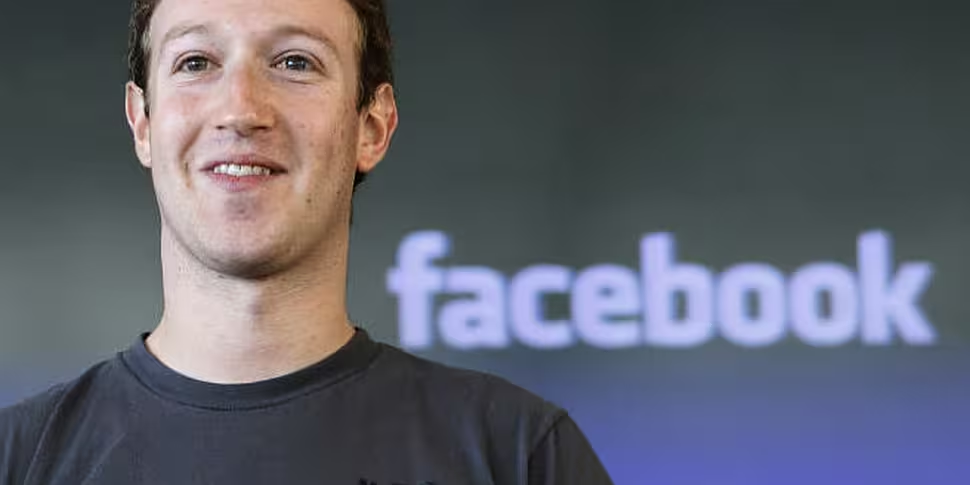Mark Zuckerberg is a genius. Not just a computer genius who created the world’s biggest social network in his dorm room. He’s also a business genius.
That, at least, is what Fortune thinks. The magazine named Zuckerberg its Business Person of the Year for 2016 crediting him as an “unexpected business management genius.”
It’s not hard to see why. Zuckerberg is overseeing a company with 1.8 billion users and 16,000 employees, with a valuation north of €315 billion with estimated earnings of €25 billion from advertising in 2016 alone, generating profits of €6.5 billion.

Facebook is unquestionably a business firing on all cylinders at the moment. It is making bucket loads of cash, continuing to gain users in huge numbers and it is even betting on the future with big investments in artificial intelligence, virtual reality and connectivity.
But, for all the positives, there is one big glaring issue: Facebook, which for many people has become synonymous with the internet, is shying away from addressing the fact that it has a responsibility for the quality of what people see in their news feed, not just the quantity.
For Facebook, all content is essentially the same. Be it news, status updates, pictures of your sister’s baby, videos of the mannequin challenge. that video of a dog doing something funny you’ve seen a hundred times before or — as has been highlighted recently — content from fake or satirical news sites.
All that matters is engagement. Are people clicking on links and liking posts? Great, give them more of that. “All that mattered for everyone was the level of engagement: media companies got ad views, Facebook got shares, and users got the psychic reward of having flipped a bit in a database,” Ben Thompson, a technology analyst said recently on his blog.

During the recent US presidential election, the amount of fake news content exploded on Facebook, with single posts being sharing hundreds of thousands of times by people who thought it was true or who wanted others to think it was true.
Content with titles like:
- “Wikileaks confirms Hillary sold weapons to ISIS”
- “Pope Francis Shocks the World, Endorses Donald Trump for President, Releases Statement”
- “IT’S OVER: Hillary’s ISIS Email Just Leaked & It’s Worse Than Anyone Could Have Imagined”
All completely, 100 percent fake.
How big was this issue? A BuzzFeed News analysis found that top fake election news stories generated more total engagement on Facebook than top election stories from 19 major news outlets combined.
The reaction from the world’s best businessman to the suggestion that Facebook’s unchecked spread of fake news helped elect Donald Trump? “It’s a crazy idea.”
Following his initial flippant response to the issue the day after the election, Zuckerberg has clearly had some time to think about things, and possibly inspired by the raft of negative coverage, he has responded, twice, with more nuanced statements.
The most recent came on Friday when he admitted there were issues, and outlined ways he was going to fix them, but it was all couched in the usual refrain of “the percentage of misinformation is relatively small.”

Traditional media outlets were not impressed with Zuck’s reaction. The New York Times and the Washington Post both posted highly critical op-eds this weekend. The Post called fake news "dangerous mischief," and suggests that news filtering is a job suited to humans, not algorithms. The Times on the other hand was more critical of Facebook’s failings, asking why their engineers are not doing more to combat the problem, and hits out at Zuckberg for letting "liars and con artists hijack his platform."
Whatever about the US election and Facebook’s popularity in north America, the influence the social network holds over certain groups of users around the world, means this issue is only going to get bigger and is something which needs to be taken very seriously.
In Africa, sites like Facebook, Twitter and services like WhatsApp are regularly banned before elections. In Indonesia, where Facebook is so popular it is often confused by people as being the same thing as the internet, fake news sites are blocked.
The problem with this approach to dealing with the problem is that it is open to abuse by those in power. Change has to come from Facebook and not governments.

Despite the recent about turn by Facebook and Zuckerberg, admitting that at the very least there is some problems to be addressed, on an official level at least, it appears that Facebook is simply telling people what they want to hear. Unofficially, there are pockets of employees within Facebook who are looking to revolt and really do something about the fake news problem. But the change needs to come from the top.
As Uncle Ben told Peter Parker, with great power comes great responsibility, but for now Facebook’s management genius seems to be burying his head in the sand about the responsibility he has to his users, and that needs to change.









